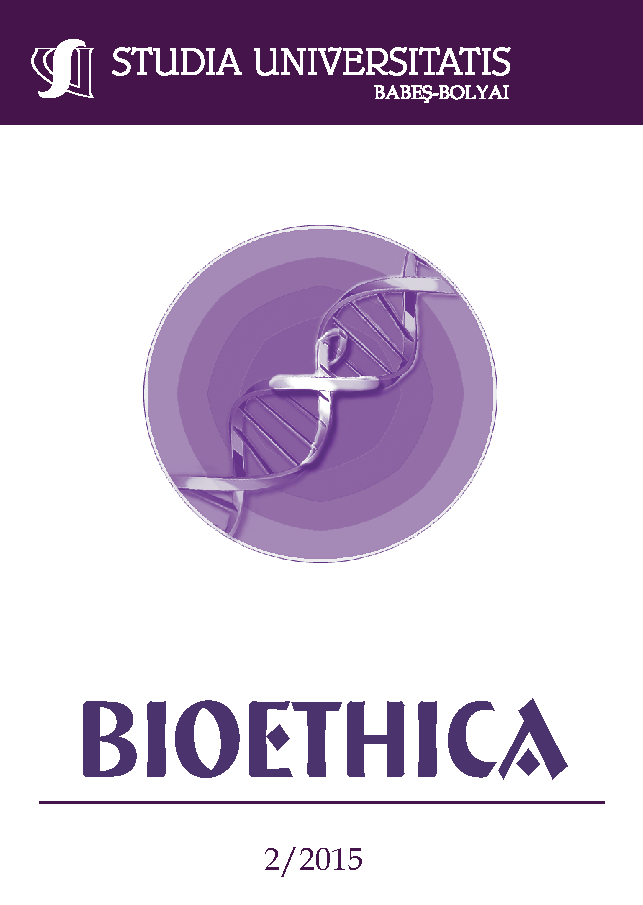AVICENNA’S CANON OF MEDICINE. RESEARCH METHODOLOGY AND ETHICS
Keywords:
Avicenna, research ethics, research methodologyAbstract
Avicenna was one of the most important Islamic physicians and philosophers. He wrote over 100 treaties of medicine, some of them containing only a few pages. His major medical work, entitled The Canon of Medicine, was finished in 1025, and included five volumes. The beginning of the Volume 2 of the Canon started with a series of general preconditions that the testing new medicines should fulfil, detailed in the chapter entitled On knowledge of the potency of drugs through experimentation. These recommendations will be analysed in this article in correlation with current principles of research ethics and methodology.
Canonul Medicinei de Avicenna. Metodologia şi etica cercetării. Avicenna a fost unul dintre cei mai importanți medici și filosofi din Islam. El a scris peste 100 de tratate de medicină, unele dintre ele conținând doar câteva pagini. Lucrarea sa majoră, intitulată Canonul Medicinii, a fost încheiată în anul 1025 și a inclus cinci volume. Cel de-al doilea volum al Canonului începe cu o serie de condiții generale pe care testarea de noi medicamente ar trebui să le îndeplinească, pe care le-a detaliat în capitolul intitulat Despre cunoașterea potenței medicamentelor prin experimentare. Aceste recomandări sunt analizate în prezentul articol prin corelare cu actualele principii de etică a cercetării și de metodologie.
Cuvinte-cheie: Avicenna, etica cercetării, metodologia cercetării
References
(2012) Canon of Medicine Natural Pharmaceuticals: Kazi Pubns Inc.
Adamson P. (2013) Interpreting Avicenna: critical essays.
Afnan SM. (2009) Avicenna: His Life and Works: The Other Press.
Davidson HA. (1992) Alfarabi, Avicenna, and Averroes on Intellect: Their Cosmologíes, Theories of the Active Intellect, and Theories of Human Intellect.
Galen, Bos G, Langermann YT, et al. (2015) The Alexandrian Summaries of Galen's on Critical Days: Editions and Translations of the Two Versions of the Jawami`.
Gutas D. (2014) Avicenna and the Aristotelian Tradition: Introduction to Reading Avicenna's Philosophical Works: Brill.
Hippocrate. Aphorisms.
Hippocrate. Despre Natura Umană.
Kant I, Guyer P and Matthews E. (2000) Critique of the Power of Judgment: Cambridge University Press.
Kaufman A. (1997) Reason, Self-Legislation and Legitimacy: Conceptions of Freedom in the Political Thought of Rousseau and Kant. The Review of Politics 59: 25-52.
MacIntyre A. (2003) A Short History of Ethics: a History of Moral Philosophy From the Homeric Age to the 20th Century: Routledge.
Miles S. (2005) The Hippocratic Oath and the Ethics of Medicine, Oxford: Oxford University Press.
Mill JS. (2010) Utilitarianism: Broadview Press.
Tyler D. (2014) Avicenna’s Canon of Medicine: Influences and Implications. Waco, Texas: Baylor University
Van Spall HG, Toren A, Kiss A, et al. (2007) Eligibility Criteria of Randomized Controlled Trials Published in High Impact General Medical Journals: a Systematic Sampling Review. JAMA 297: 1233-1240.
Zargaran A, Mehdizadeh A, Zarshenas MM, et al. (2012) Avicenna (980–1037 AD). Journal of Neurology 259: 389-390.
Downloads
Published
How to Cite
Issue
Section
License
Copyright (c) 2015 Studia Universitatis Babeș-Bolyai Bioethica

This work is licensed under a Creative Commons Attribution-NonCommercial-NoDerivatives 4.0 International License.






